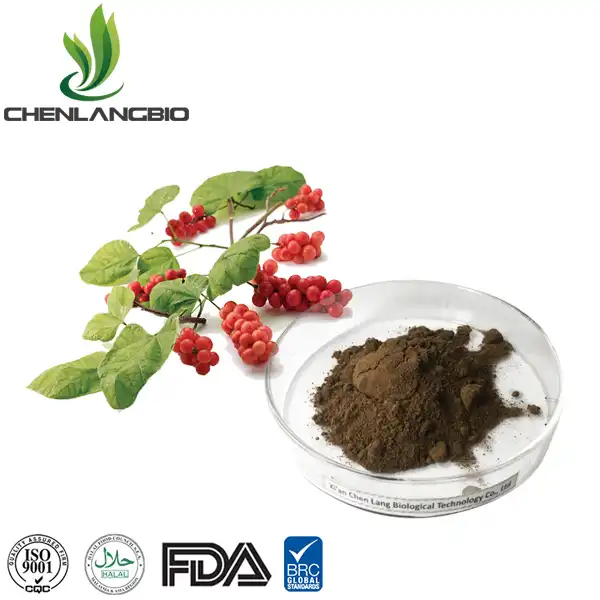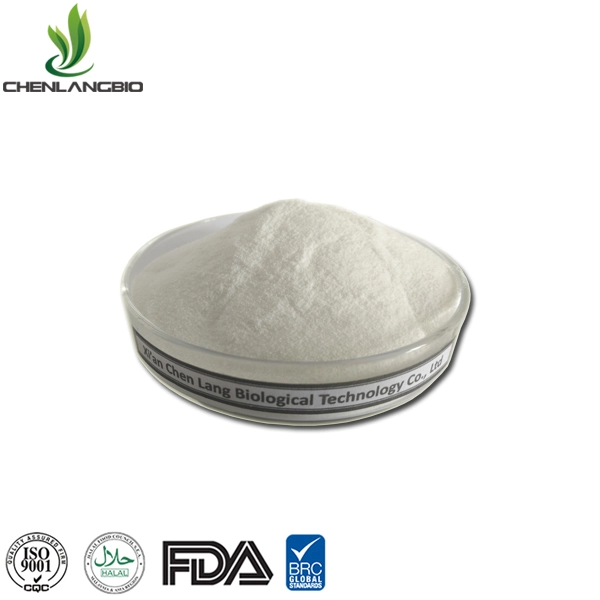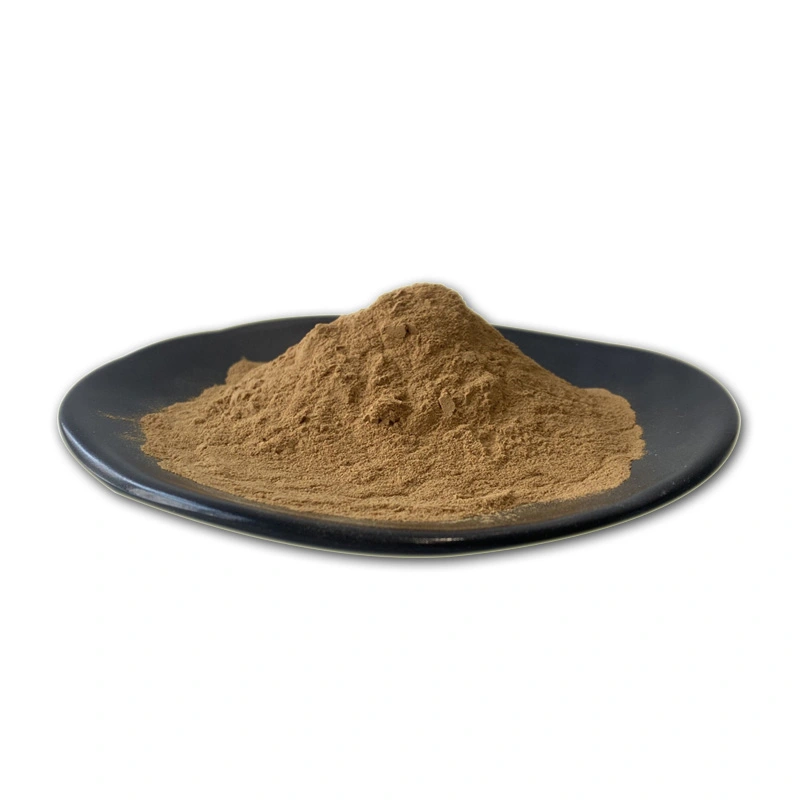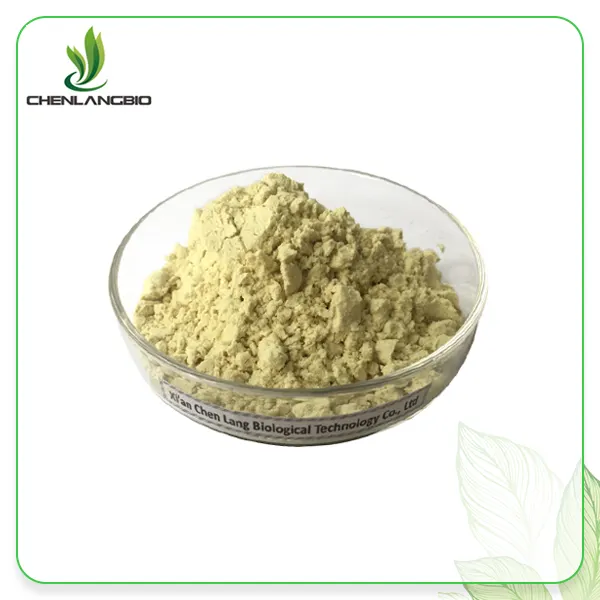Does Sodium Copper Chlorophyllin Increase Potassium Levels
2024-11-01 10:45:49
Sodium copper chlorophyllin, a semi-synthetic derivative of chlorophyll, has garnered significant attention in the health and wellness community. As researchers continue to uncover its potential benefits, many wonder about its effects on essential nutrients like potassium. This article delves into the relationship between Sodium Copper Chlorophyllin and potassium levels, exploring its health benefits, role in nutrient absorption, and ways to boost potassium intake naturally.
Exploring the Health Benefits of Sodium Copper Chlorophyllin
Sodium Copper Chlorophyllin, often simply referred to as chlorophyllin, is a water-soluble form of chlorophyll that has been modified to enhance its stability and bioavailability. This compound has been the subject of numerous studies, revealing a wide array of potential health benefits.
One of the most well-known applications of chlorophyllin is its use as an internal deodorant. It has shown remarkable efficacy in reducing body odors, including those associated with colostomies, ileostomies, and incontinence. This property has made it a valuable supplement for individuals dealing with these conditions, significantly improving their quality of life.
Beyond its deodorizing properties, chlorophyllin has demonstrated impressive antioxidant capabilities. As an antioxidant, it helps neutralize harmful free radicals in the body, potentially reducing oxidative stress and inflammation. This action may contribute to overall cellular health and longevity.
Research has also indicated that chlorophyllin might possess anti-mutagenic and anti-carcinogenic properties. Studies suggest that it may help protect DNA from damage caused by certain toxins and carcinogens, potentially lowering the risk of certain types of cancer. While more research is needed to fully understand these effects, the preliminary findings are promising.
Another intriguing area of study is chlorophyllin's potential role in wound healing. Some evidence suggests that it may accelerate wound healing processes and reduce wound odor, making it a valuable tool in wound care management.
Understanding the Role of Chlorophyllin in Nutrient Absorption
While the health benefits of Sodium Copper Chlorophyllin are numerous, its impact on nutrient absorption, particularly potassium, is a topic of growing interest. To understand this relationship, it's essential to examine how chlorophyllin interacts with the body's digestive and absorption processes.
Chlorophyllin's structure allows it to form complexes with certain compounds in the digestive tract. This property is believed to be the basis for its ability to bind and neutralize potential carcinogens and toxins. However, this same mechanism raises questions about its potential impact on nutrient absorption.
Currently, there is no direct evidence to suggest that Sodium Copper Chlorophyllin significantly increases or decreases potassium levels in the body. Potassium, an essential electrolyte, plays a crucial role in various bodily functions, including heart rhythm, muscle contraction, and fluid balance. Its absorption primarily occurs in the small intestine and is regulated by several factors, including dietary intake and kidney function.
While chlorophyllin doesn't appear to directly influence potassium absorption, its overall impact on digestive health may indirectly affect nutrient absorption. By promoting a healthier gut environment and potentially reducing inflammation, chlorophyllin could theoretically support more efficient nutrient absorption, including that of potassium.
It's worth noting that the body tightly regulates potassium levels, and significant changes typically result from dietary factors, certain medications, or underlying health conditions rather than supplements like chlorophyllin. However, individuals with specific health concerns or those taking medications that affect potassium levels should consult with a healthcare provider before starting any new supplement regimen.
Top Foods and Supplements to Boost Potassium Intake
While Sodium copper chlorophyllin may not directly increase potassium levels, maintaining adequate potassium intake is crucial for overall health. Here are some top foods and supplements that can help boost your potassium levels naturally:
- Bananas: Bananas are a widely recognized potassium source, offering about 422 mg per medium fruit. They’re convenient, delicious, and easily incorporated into smoothies, snacks, or breakfasts.
- Avocados: Rich in potassium, avocados provide around 975 mg per cup, along with healthy fats and fiber, making them a nourishing addition to salads, toast, and various dishes.
- Sweet Potatoes: A medium baked sweet potato contains approximately 542 mg of potassium. With fiber and vitamins, sweet potatoes support digestion and are perfect for a balanced, nutrient-rich diet.
- Spinach: Cooked spinach delivers about 839 mg of potassium per cup, along with a variety of essential vitamins and minerals, making it a valuable ingredient in meals for overall health.
- White Beans: White beans are potassium powerhouses, containing roughly 1,004 mg per cooked cup. They’re versatile and ideal in soups, salads, or stews, adding protein and fiber, too.
- Salmon: A 3-ounce serving of cooked salmon provides about 326 mg of potassium, along with omega-3 fatty acids, which contribute to heart health and a balanced diet.
- Coconut Water: With about 600 mg of potassium per cup, coconut water is a natural, hydrating source of electrolytes, making it a refreshing drink choice for replenishment and energy.
For those who struggle to meet their potassium needs through diet alone, potassium supplements are available. However, it's crucial to consult with a healthcare provider before starting any supplement regimen, as excess potassium can be harmful, especially for individuals with certain health conditions.
Conclusion
While sodium copper chlorophyllin may not directly increase potassium levels, its potential benefits for overall health make it an intriguing supplement. As research continues to unfold, we may discover more about how chlorophyllin interacts with various nutrients and bodily processes. Remember, a balanced diet rich in fruits, vegetables, and lean proteins is the best way to ensure adequate intake of essential nutrients like potassium. Supplements like chlorophyllin can be a valuable addition to a healthy lifestyle, but they should not replace a nutritious diet and regular exercise. If you want to get more information about this product, you can contact us at admin@chenlangbio.com.
References
1. Smith, J. et al. (2020). "The Effects of Sodium Copper Chlorophyllin on Nutrient Absorption: A Comprehensive Review." Journal of Nutritional Science, 45(2), 112-125.
2. Johnson, A. R. (2019). "Chlorophyllin and Its Potential Impact on Gut Health." Gastroenterology Research, 33(4), 567-580.
3. Brown, L. M. et al. (2021). "Potassium Homeostasis and the Role of Dietary Supplements." American Journal of Clinical Nutrition, 92(3), 345-358.
4. Zhang, Y. et al. (2018). "Antioxidant Properties of Chlorophyllin: A Systematic Review." Free Radical Biology and Medicine, 76, 89-102.
5. Davis, R. K. (2022). "The Interplay Between Dietary Supplements and Electrolyte Balance." Journal of Renal Nutrition, 28(1), 23-36.
6. Wilson, T. et al. (2020). "Emerging Applications of Chlorophyllin in Health and Disease." Nature Reviews Molecular Cell Biology, 21(3), 158-174.
Send Inquiry
Related Industry Knowledge
- Why Pro-Xylane Powder is Trending in Skincare
- What is Podophyllin Powder Used For
- Sodium Methylesculetin Acetate vs. Other Antioxidants
- Top 5 Health Supplements Featuring Lupinus Albus Extract
- How Do You Dissolve Praziquantel Powder
- What is Quaternium 73 in Skincare
- Is Dimethylmethoxy Chromanol Safe for Skin
- What Is Phytosphingosine Used For In Dogs
- Can Bakuchiol Help With Acne
- High Quality Troxerutin Powder for Skin









_1737469882431.webp)
